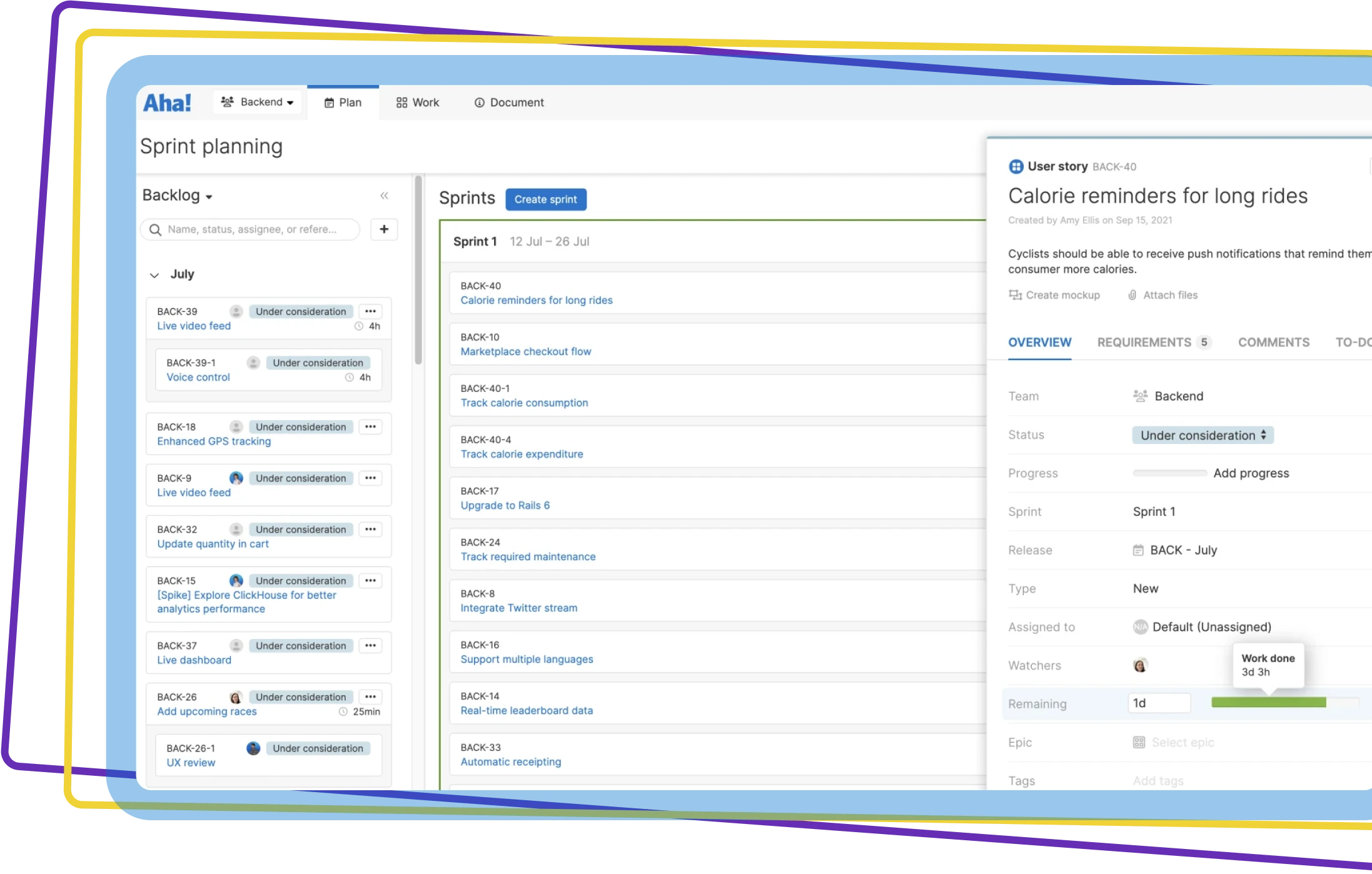

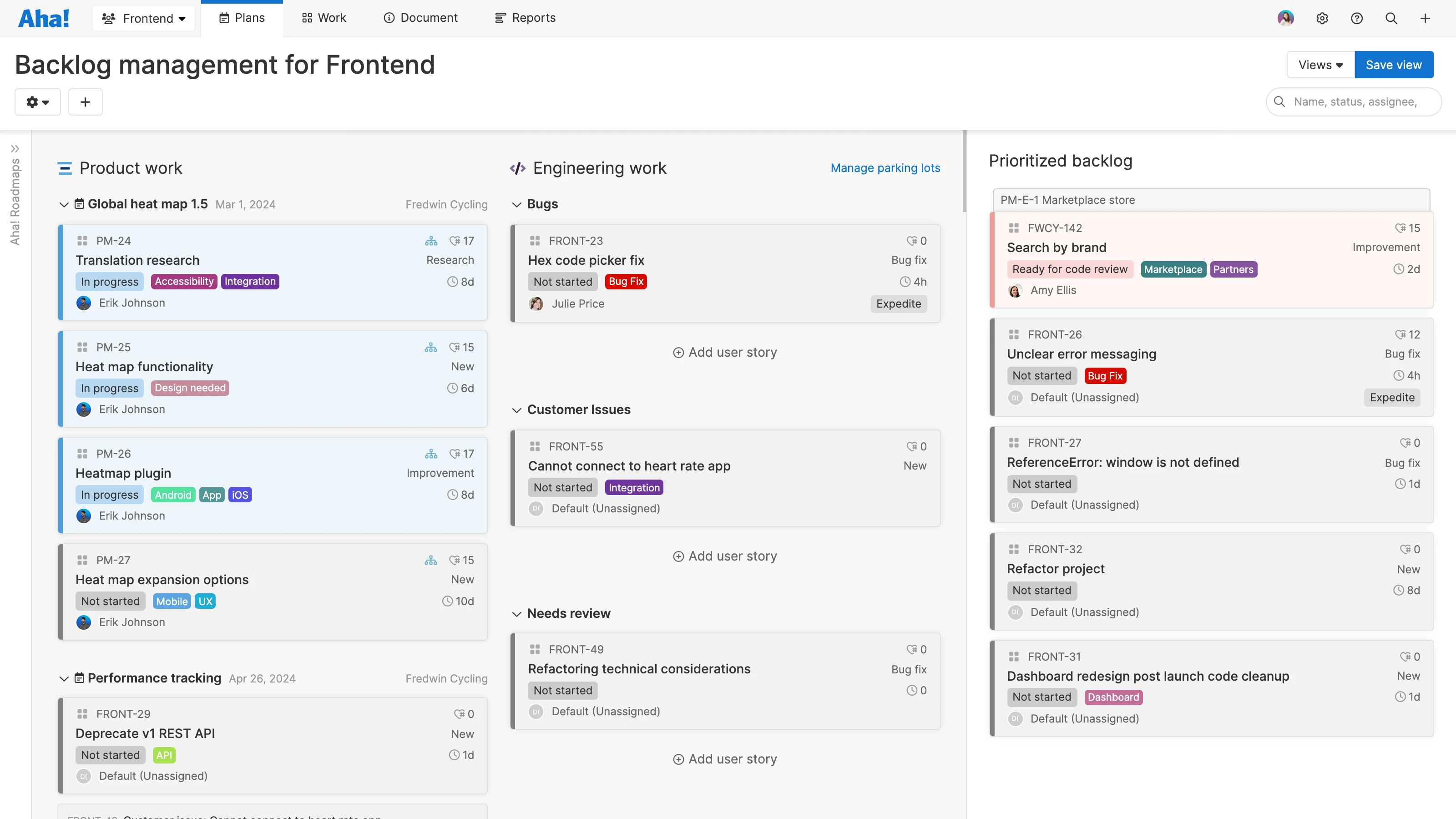
Create epics and break down functionality into user stories and tasks. Use the backlog management page to evaluate work that has been assigned from product management alongside engineering priorities — all in a single view. Rank work based on its value to inform your sprint planning decisions.
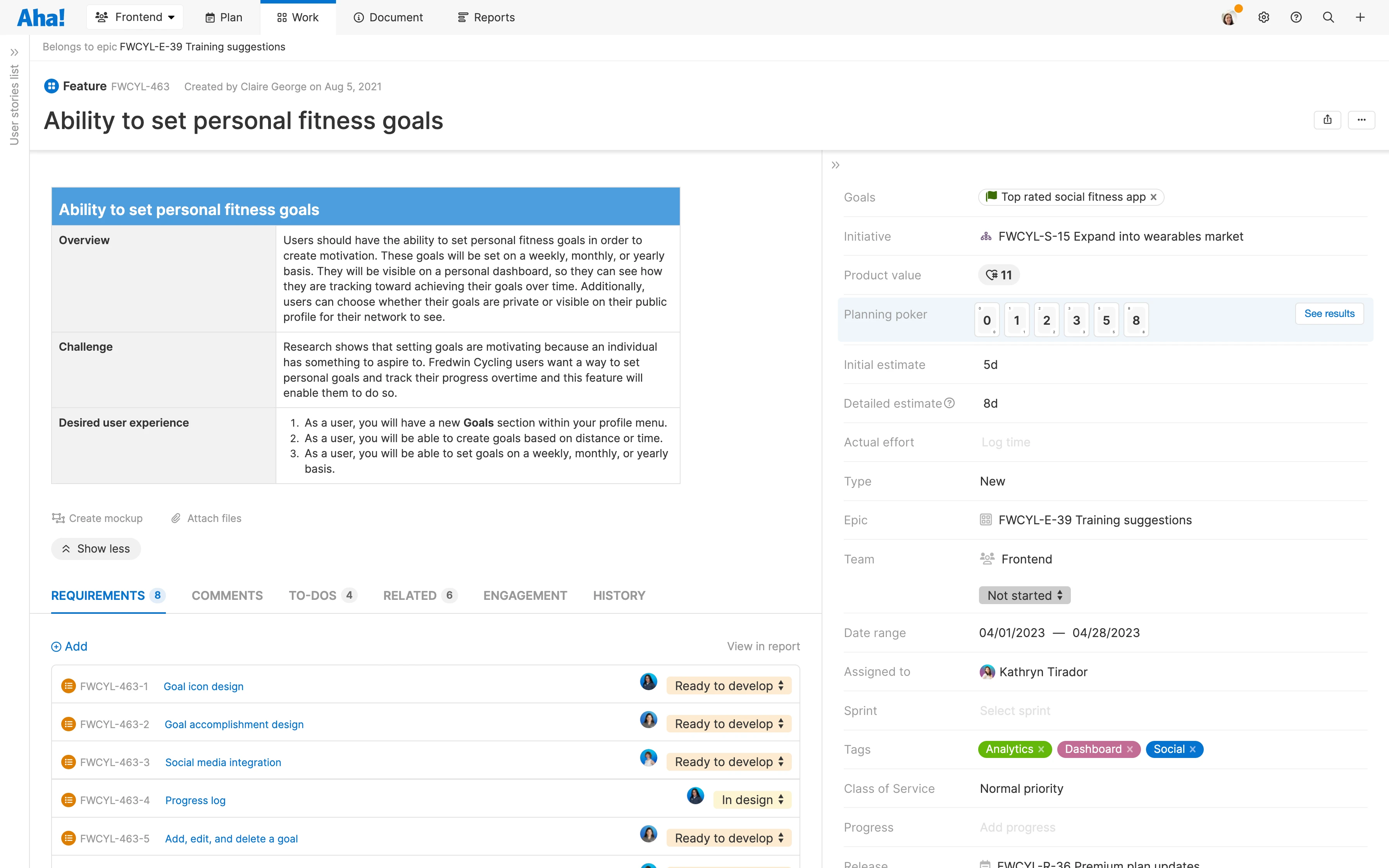
Accurate estimation is critical for capacity planning, so assess what it will take to develop new functionality in story points or time. Fan of planning poker? Play your cards and nail down estimates right on your user stories. Tie those estimates back to the product roadmap — giving everyone a clear picture of the effort and time required to achieve it.
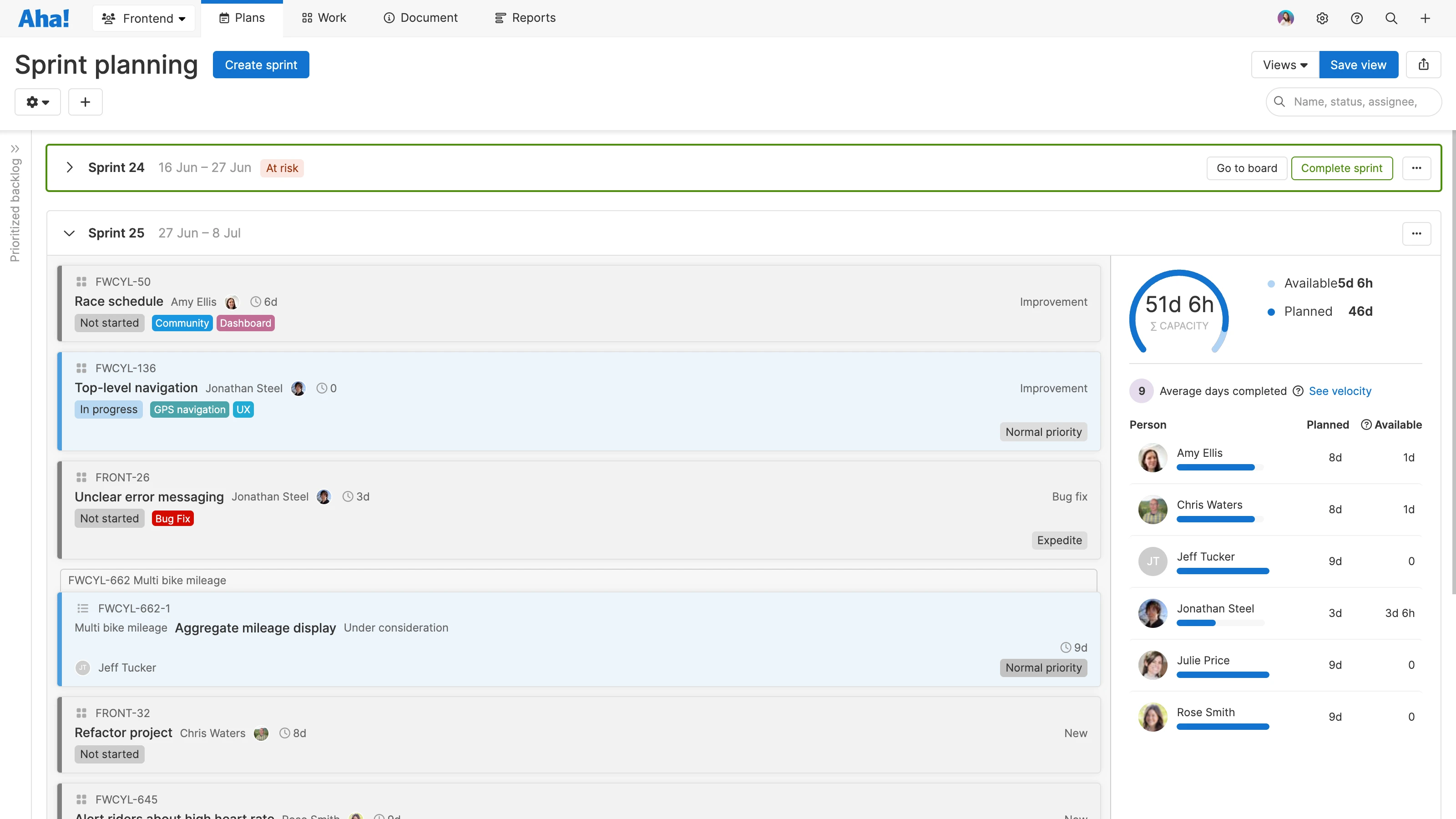
Plan what needs to be delivered and when. Automatically calculate capacity based on each engineer's availability and velocity. As you move cards from your backlog into a sprint, team capacity updates in real time. Commit to plans with certainty because you know exactly what the team can take on.

Keep sprints running smoothly. Use a customizable workflow board to track the progress of everything assigned to a sprint. Switch to a burndown chart to track changes in scope and see if you are trending above or below the ideal pace line. The right visualizations help you spot issues early so you can achieve your sprint goals every time.
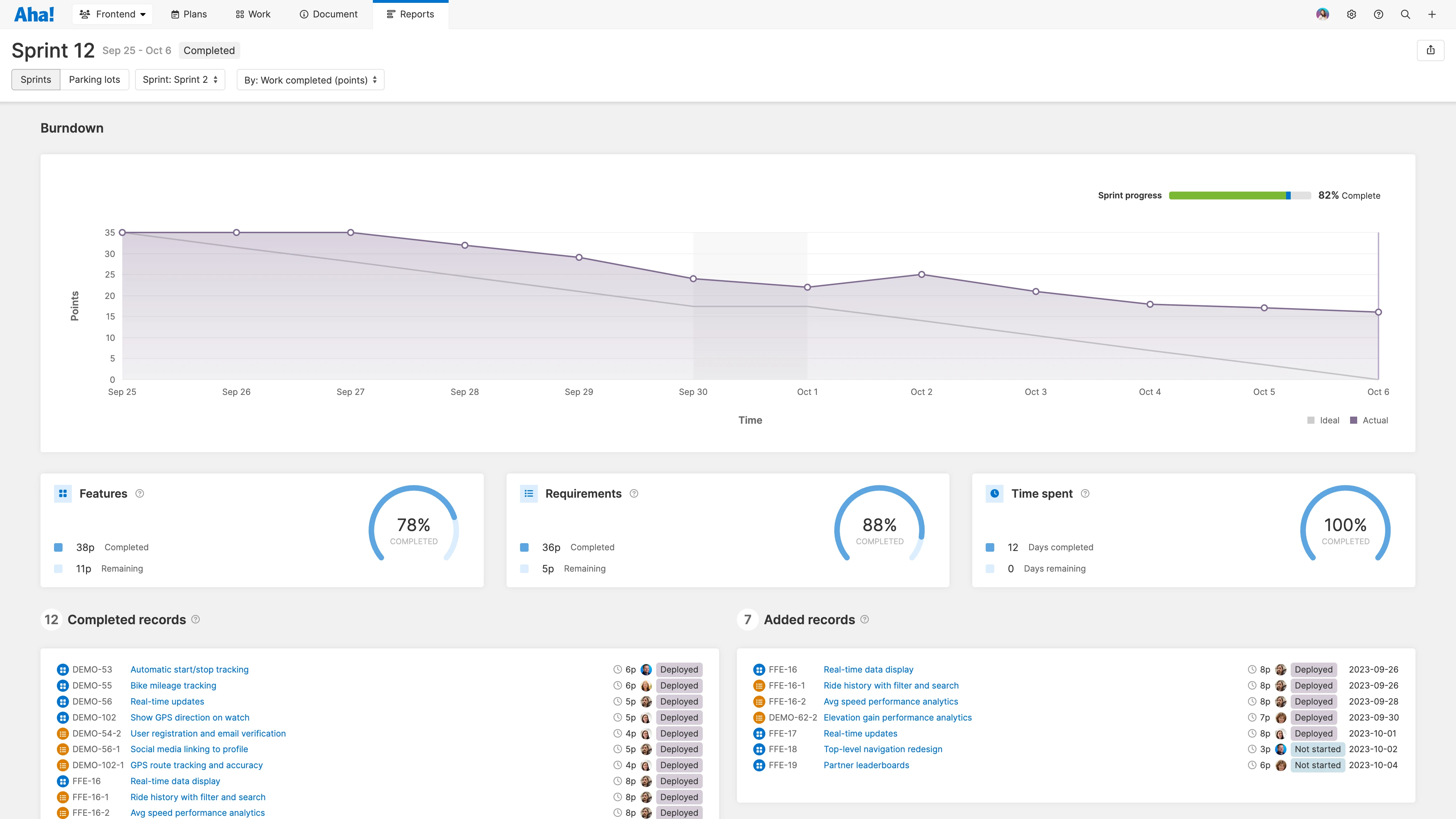
Look back on each sprint to celebrate wins, discuss issues, and find ways to improve. The sprint retrospective report gives you a one-page summary of your plans and results. Then, use the sprint retrospective meeting template to structure an engaging discussion and document next steps.